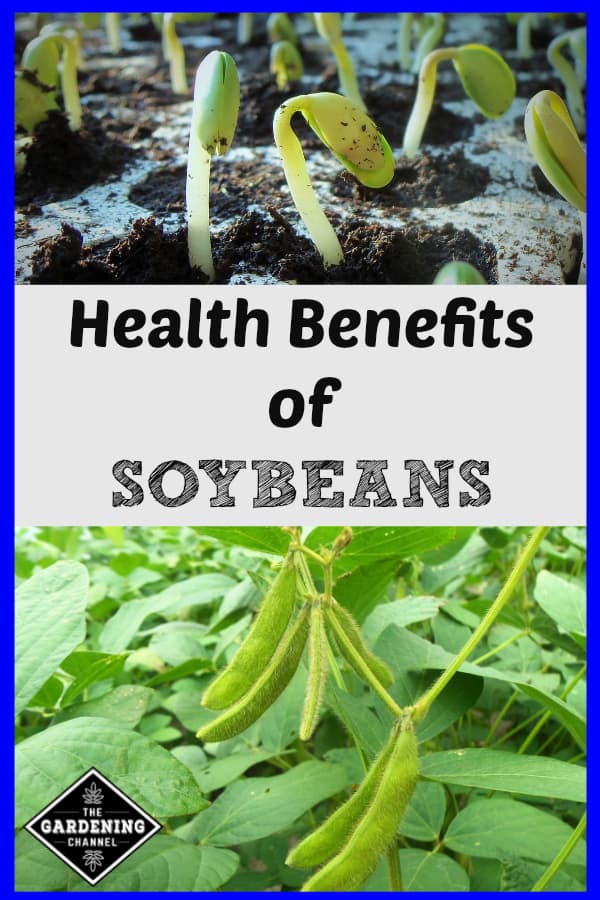
Soybeans are a widely grown crop for the food industry, but also deliver some great health benefits to your family when grown straight out of the garden. Soybeans are actually legumes and grow in a pod similar to peas. The seeds are used to make soybean oil, tofu, miso and even soy sauce.
Growing Soybeans
Soybeans thrive in full sun with soil that is moderately rich in organics. Plant the seeds in early spring and evenly water your soybean crop as it grows. Too much rain, watering, and nitrogen in the soil can lead to bacterial blight. Also, be careful not to handle the soybean plants if they are damp, so that disease is not easily spread.
Harvesting begins when the soybean is about three to four inches long. If you harvest too late your soybean plant will stop producing, so watch the bean growth. Sayamusume is a popular variety to grow, as is the Envy soybean plant.
Store your fresh soybeans in the refrigerator and eat within a few days. If you buy dried soybeans from the store, keep them in an airtight container tucked away in a dark, cool place for up to a year. Blanching and freezing fresh soybeans is also a good idea.
Nutritional Values of Soybeans
Nutrient Unit Value per 1 cup, cooked (172g)
Energy/Calories 298 Kcal
Protein 28g
Fat (total) 15.4g
Fiber 10.3g
Sugar (total) 5g
Vitamin C 2.9mg
Vitamin A 15.4IU
Calcium 175mg
Magnesium 148mg
Potassium 885mg
Beta Carotene 9.98mcg
Soybean Health Benefits
The list of health benefits that soybeans deliver is lengthy. It is especially important however, to eat soy products that are fresh instead of those that are processed. The nutritional benefits are much more concentrated and pure, although even the processed varieties are healthy for you.
The protein found in soybeans is unique and has enormous health benefits. It has been shown to reduce the risk of cancers, including colon, breast and prostate cancer. Soy protein also helps those with diabetes. It allows them to maintain healthy levels of cholesterol, protecting their kidneys and even helping with blood sugar levels.
Soybeans, especially in the form of soy nuts, are highly beneficial to post-menopausal women. Eating soy nuts can reduce the menopausal symptoms, lower blood pressure, help maintain good cholesterol levels and reduce the risk of heart disease.
Soybeans are an excellent source of protein, iron, fiber and potassium. All of these nutrients are essential for good overall health and abundant energy.
Getting the Most Nutrition Out of Your Soybeans
Soybeans can come in many different forms – from oil to nuts, flour to fresh beans. This legume can make its way easily into your diet in one form or another. Aim for a balanced amount of soybean in your diet and experiment with different ways of including it.
Besides tofu and soy sauce, which are both commonly found in Oriental cooking, soybeans can be added to your diet in a number of simple ways:
Soy Milk
Try this milk instead of traditional cow’s milk. It works in cereal, in tea or coffee, and in baking.
Stews, Soups and Casseroles
Add steamed soybeans to recipes for a flavor and nutrient boost. Freeze the soybeans as you harvest for convenient additions all throughout the year or throw in some dried soybeans after soaking them for ten minutes.
Salads
Soybean sprouts are excellent in salads or as a replacement for lettuce in sandwiches.
Edamame
Boil in the shell and enjoy as a snack or appetizer. Most add a little salt in the boiling water or sprinkle on top of the beans once drained.
Soy Nuts
Dried soy nuts are perfect for travel or a snack on the go.
Soybean Concerns and Cautions
Soybeans may cause allergies and can be especially dangerous to those with legume allergies (peanut and tree nut). Also, soybeans contain oxalates meaning they should be avoided by those who are living with kidney or gallbladder difficulties.
Look for organically grown soybeans in processed foods, as they will be free of GMOs (genetic modified organisms). Also, recent research is addressing the concerns of too much soy in a diet. While soybeans are easy to incorporate into a meal plan, make sure to eat a balanced diet.
Want to learn more about the health benefits of soybeans?
Check out these websites:
Soy Protein, Isoflavones, and Cardiovascular Health: A study published here by the American Heart Association discussing the benefits of soybeans in fighting heart disease.
Soybean Nutrition
Edamame: The Vegetable Soybean from Rutgers Cooperative Research and Extension

Leave a Reply